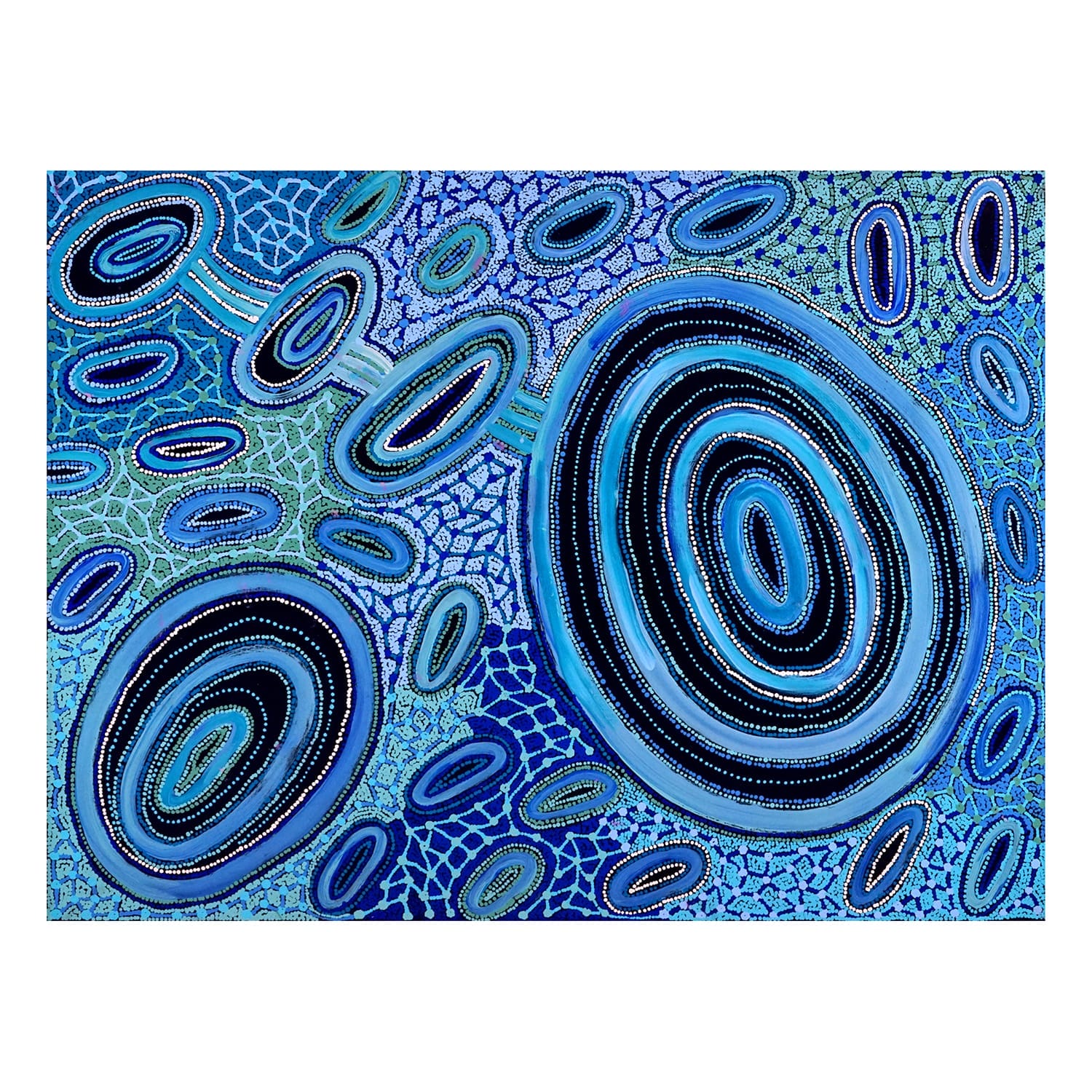
- This event has passed.
50th Anniversary Aboriginal Exhibition “Ancient Lands . . . Ageless Stories”
November 11, 2023 @ 6:00 pm

Event Admission
Celebrating the 50th anniversary of the beginning of Australia’s contemporary Aboriginal art movement, the exhibit showcases works by such acclaimed painters as Rosella Namok, SilasHobson, and Fiona Omeenyo from Lockhart River near the northern tip of the Great Barrier Reef, as well as established and emerging artists, including Jeffrey Jangala Gallagher, Theo (Faye) Nangala Hudson, and Joycie Pitjarra Morton, from Australia’s vast desert country. The exhibition will also include a selection of older works, some just released from private collections.
Australia’s First Nation artists draw on their heritage as the world’s oldest living culture, with a 50,000-year history of drawing on cave walls, in the sand, on bark, and on their bodies for ceremony.
The contemporary Aboriginal art movement began in the early 1970’s at Papunya, a remote government settlement in the Northern Territory. At the urging of the local school’s art teacher, a group of senior men agreed to paint a mural of a tribal Tjukurrpa, or Dreaming story about their Honey Ant ancestor. Using modern paints and brushes, they created a striking abstract work on a school wall, and soon after, began painting on canvas, old floor boards, whatever they could find. These small paintings quickly attracted attention at a small art gallery and on the streets of Alice Springs, several hundreds of miles away. Soon, men and women from other indigenous communities began painting, translating their own traditional patterns onto canvas. Today, hundreds of Aboriginal painters from coast-to-coast exhibit their works, portraying a cultural journey unlike any other, in museums and galleries not only in Australia but throughout Europe, Asia, the Middle East, and the U.S.



